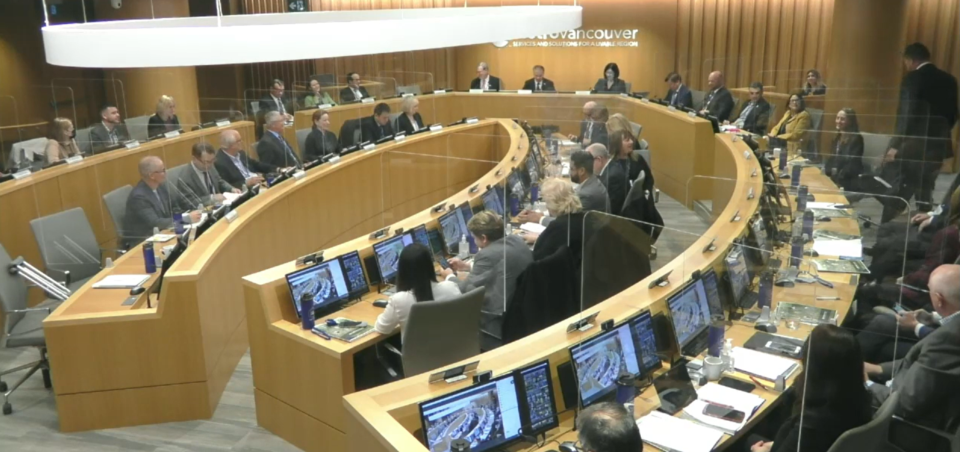On Friday, Metro Vancouver’s board of directors will debate not only how to tax the region’s property owners for an extraordinary $2.8-billion cost overrun at the North Shore wastewater treatment plant, they will also decide if the chair and vice-chair ought to be granted a further $51,450 in addition to their regular salaries that are pegged to inflation annually.
According to Dorothy Shermer, director of board and information services, the current pay structure is "outdated."
Metro Vancouver is the regional government for 23 local municipalities or local authorities. It has an appointed board of directors comprised of elected municipal councillors and mayors who themselves elect a chair and vice-chair to run meetings.
Right now, the chair and vice-chair are paid for a maximum of 18 additional meetings annually, with compensation set at 0.5 per cent of their annual salary.
When a meeting goes past four hours the chairs are paid double, as are normal directors.
The 18-meeting cap was imposed in 2007 in part to prevent abuse, Shermer’s report to the board notes.
“However,” added Shermer, “the number of standing committee meetings requiring board chair and board vice-chair attendance has significantly increased, with the result that the cap of 18 meetings is usually reached early in the year. It is therefore proposed that the 18 meeting cap be increased to 67 meetings.”
This will result in a $51,450 pay raise for the two positions, combined, according to the proposed revised bylaw.
The bylaw also sees to salaries being adjusted annually to the Vancouver consumer price index.
As it stands now, in addition to the meeting payments, the chair is paid a base salary of 75 per cent of the median salary for the region’s mayors, respectively. The vice-chair gets half that. The current pre-meeting salary is $105,039 for the chair and $52,520 for the vice-chair.
The current but outgoing chair is George Harvie, Delta’s mayor. Last month members of Delta city council voted to remove him from the position citing a lack of cooperation on his part when handling municipal matters.
Harvie initially requested a pause on his removal in order to attend a meeting on urban drainage in Amsterdam but rescinded the request on Monday.
Harvie oversaw a record level of spending on travel expenses for the board in 2023 and has faced questions over his purported business class airfare to Brisbane, Australia in 2023 and Singapore in 2024, to attend conferences.
Metro Vancouver taxpayers forked over $17,336 to fly Harvie to Brisbane, whereas they paid only $9,166 for vice-chair John McEwan and $10,165 for finance chair Brad West, to attend the Asia Pacific Cities Summit.
This year, Harvie flew to Singapore, with airfare alone exceeding $21,000 whereas CAO Jerry Dobrolvony’s airfare cost just over $14,000.
Both Harvie and Metro Vancouver insist Harvie’s airfares were for one person only and in business class (per Metro policy for international flights), not for first-class travel.
The board will also meet Friday to weigh whether to charge all the region’s property owners an additional $40 per year for the next 15 years, in order to lessen he burden on North Shore taxpayers who are otherwise on the hook for much of the wastewater plant’s cost overruns.



